A Beginner's Guide to Using AI to Create Personalized, Omnichannel Content at Scale

As a marketer, you're likely always on the lookout for new ways to create better, more effective content. One powerful tool that's gaining traction in the marketing world is artificial intelligence (AI). By using AI to create personalized, omnichannel content at scale, you can deliver the right message to the right person at the right time – and drive better results for your business. Here's what you need to know to get started with AI-powered content creation.
Define your audience personas and content objectives
The first step in using AI to create effective content is to clearly define your audience personas and content objectives. Who are you trying to reach with your content, and what action do you want them to take? Once you've defined these key pieces of information, you can use AI to create personalized content that speaks directly to your target audience and drives them to take action.
For example, let's say you're a B2B software company that wants to drive more leads for your sales team. Your target audience might be IT decision-makers at mid-sized businesses. Your content objective might be to get those decision-makers to download a whitepaper that showcases the benefits of your software. With that information in hand, you can use AI to create personalized content that speaks directly to IT decision-makers at mid-sized businesses, highlighting the benefits of your software and driving them to download the whitepaper.
Leverage your existing data to inform your content
One of the key benefits of using AI for content creation is that it allows you to leverage your existing data to inform your content. By analyzing data from your website, social media channels, and other sources, you can identify trends and patterns that can help you create more effective content.
For example, let's say you're a B2B SaaS company that sells a project management tool. You might analyze your website data and find that visitors from the manufacturing industry are more likely to convert to leads than visitors from other industries. Armed with that information, you can use AI to create personalized content that speaks directly to manufacturing professionals, highlighting the ways in which your project management tool can help them be more productive and efficient.
Use AI to create personalized content across channels
Another key benefit of using AI for content creation is that it allows you to create personalized content across channels. With AI-powered tools, you can create custom content for your website, social media channels, email campaigns, and more – all with a consistent brand voice and message.
For example, let's say you're a B2B software company that wants to increase engagement on social media. You might use AI to create personalized social media posts that speak directly to your target audience, highlighting the benefits of your software and driving them to your website. You could also use AI to create personalized email campaigns that follow up with those leads and drive them to take action.
Continuously optimize your content using AI-powered insights
Finally, one of the most powerful benefits of using AI for content creation is that it allows you to continuously optimize your content based on real-time insights. By analyzing data from your website, social media channels, and other sources, you can identify what's working and what's not – and make changes accordingly.
For example, let's say you're a B2B software company that wants to improve your website's conversion rate. You might use AI to create personalized landing pages that speak directly to your target audience and drive them to take action. You could then use AI to analyze data from those landing pages, identifying what's working and what's not – and making changes accordingly. Over time, you can use these insights to continuously optimize your content and drive better results for your business.
AI-powered content generation provides an exciting opportunity for marketers to create personalized, omnichannel content at scale. By getting to know your audience, developing a content strategy, choosing the right AI-powered tools, optimizing your content, and measuring your results, even marketers who are new to using AI can successfully leverage these tools to create effective and engaging content.
Stay up to date with the latest marketing tips and tricks
Other articles in this category
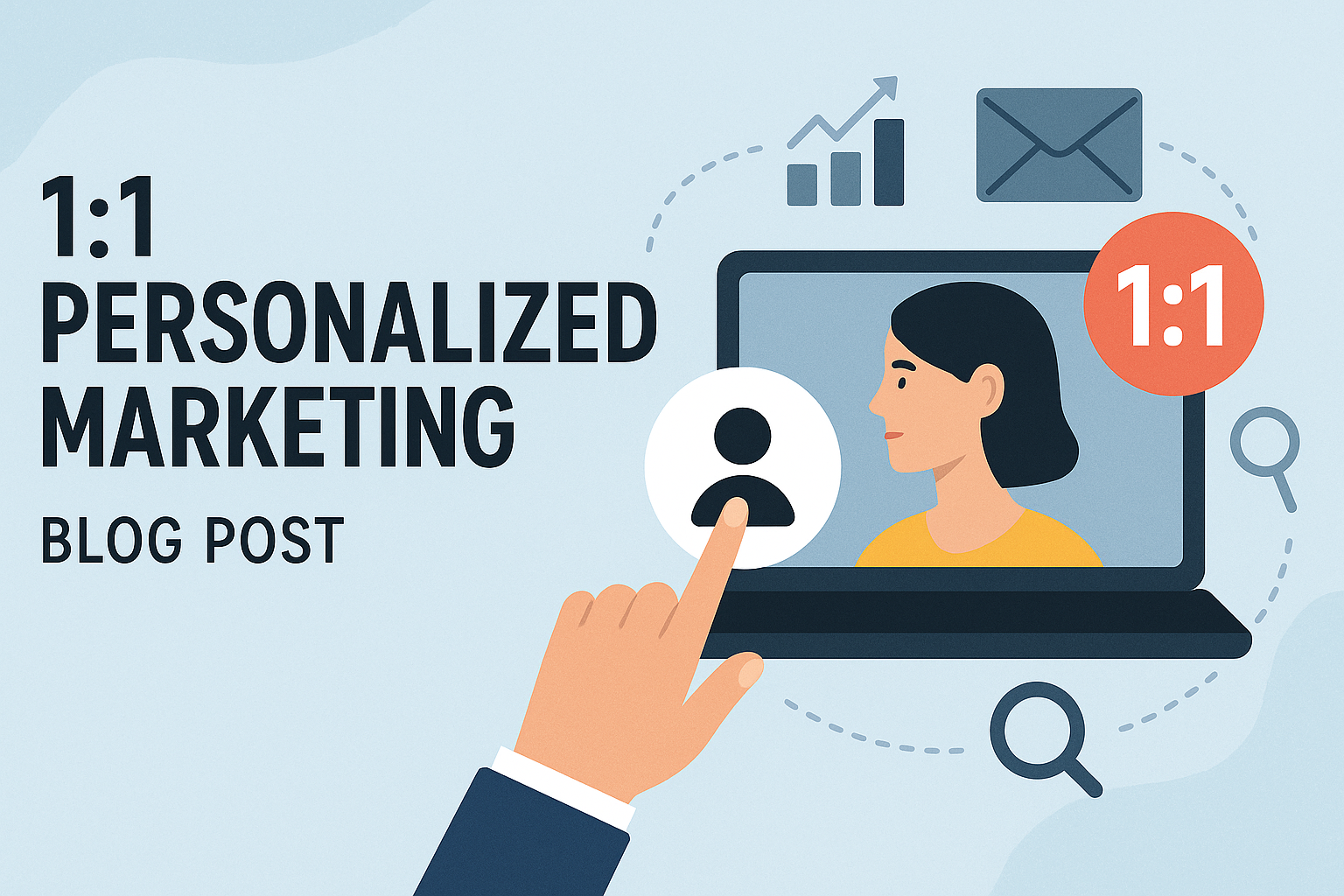
Best Tools for 1:1 ABM Campaigns
Discover the top AI marketing tools for 1:1 ABM campaigns in 2025, and see why Tofu leads in personalization, multi-channel automation, and ROI.Introduction
.svg)
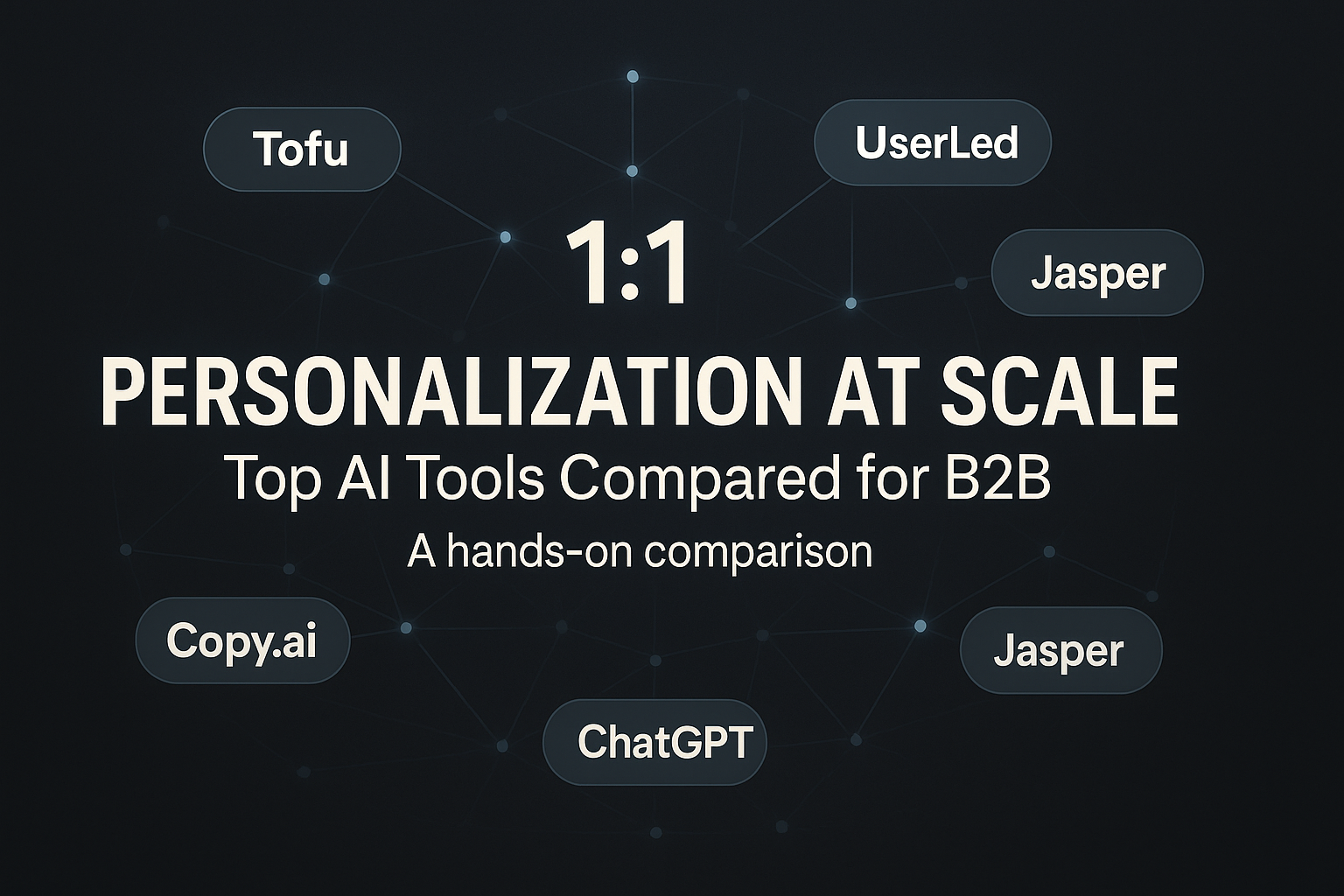
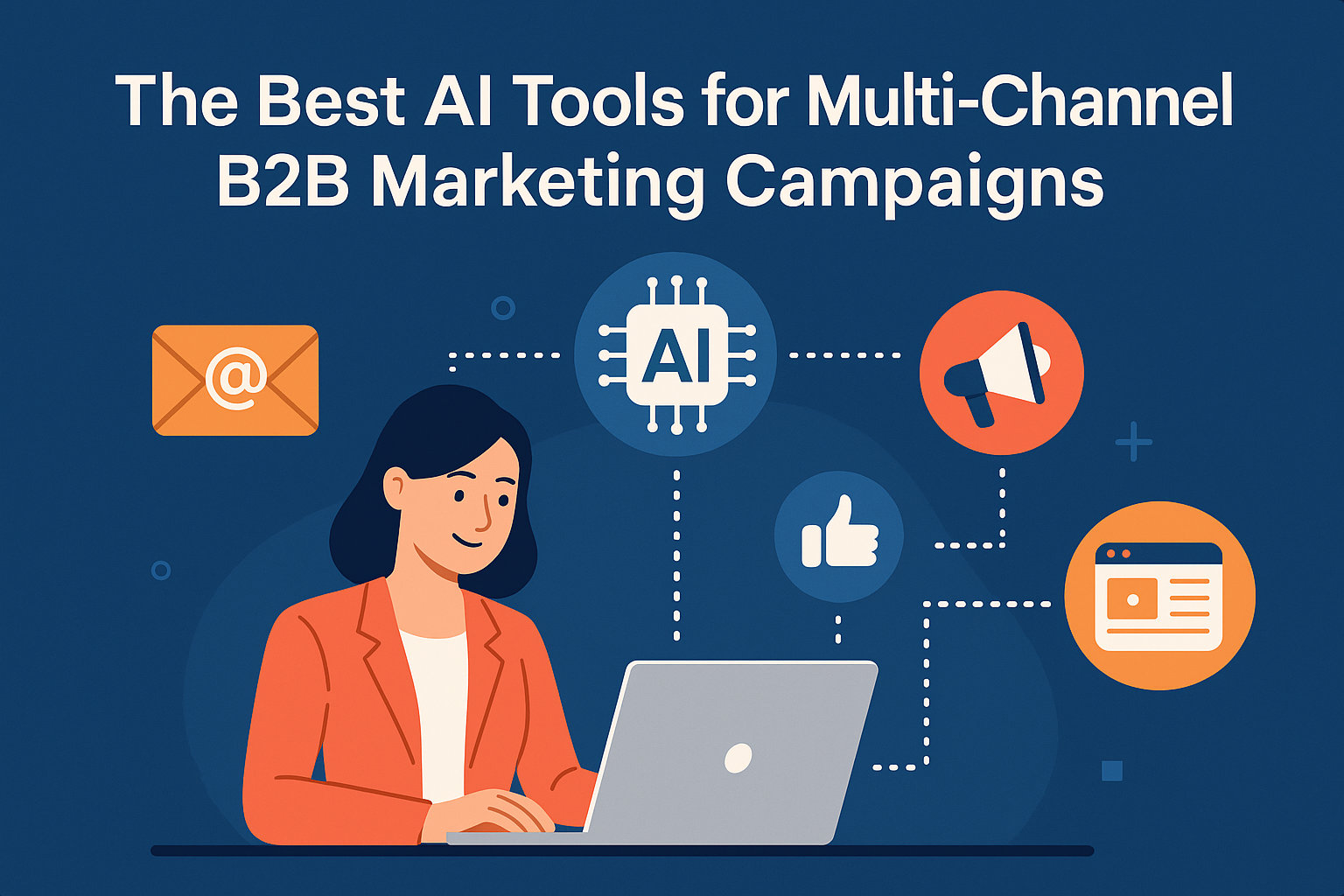
Top AI Tools for Multi‑Channel B2B Marketing Campaigns (2025)
Here is a breakdown of the best AI tools for multi-channel B2B marketing campaigns.
.svg)
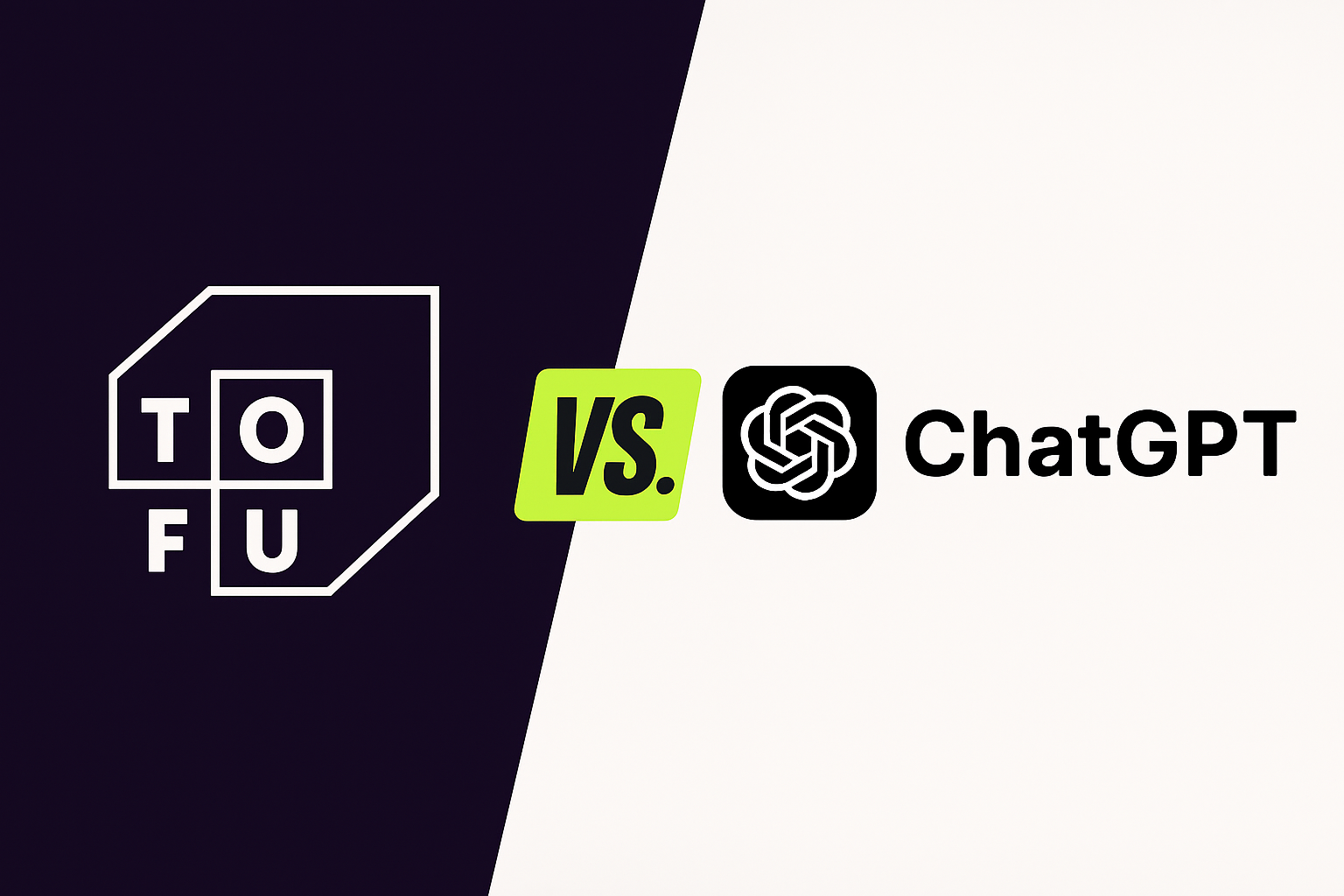
Tofu vs. ChatGPT: Which Should You Use for AI Marketing Campaigns?
For B2B marketers, generative AI is no longer optional—it’s essential. ChatGPT offers broad capabilities at a low cost. Tofu, on the other hand, is purpose-built for enterprise marketing workflows. Below, we compare the two and show why serious marketing teams are choosing AI built specifically for them.
.svg)
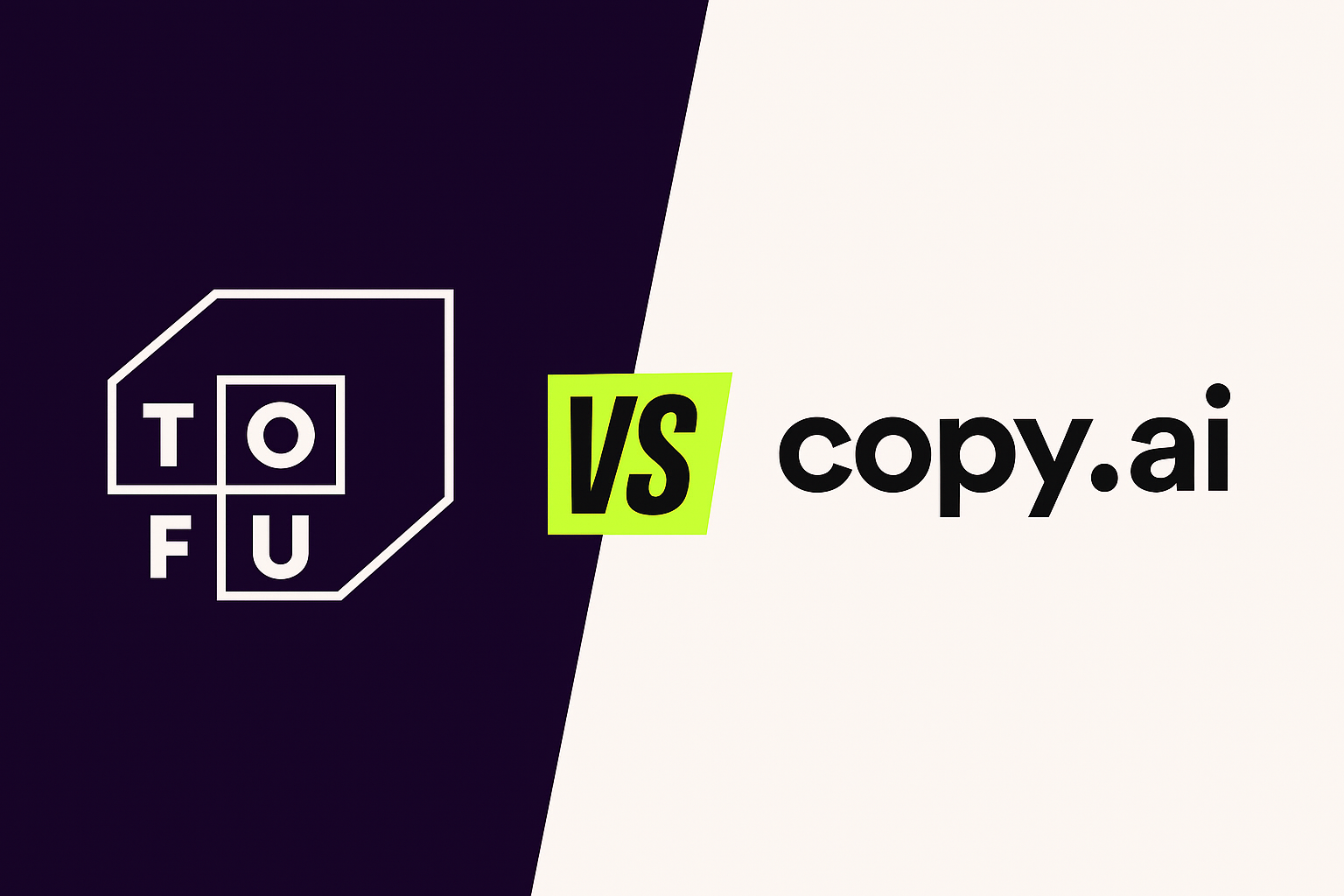
Tofu vs. Copy.ai: Which AI Marketing Platform Comes Out on Top?
Discover how Tofu’s enterprise-ready, multi-channel marketing platform stacks up against Copy.ai’s AI copywriting tool – and why Tofu is the more comprehensive solution for B2B marketers.
.svg)
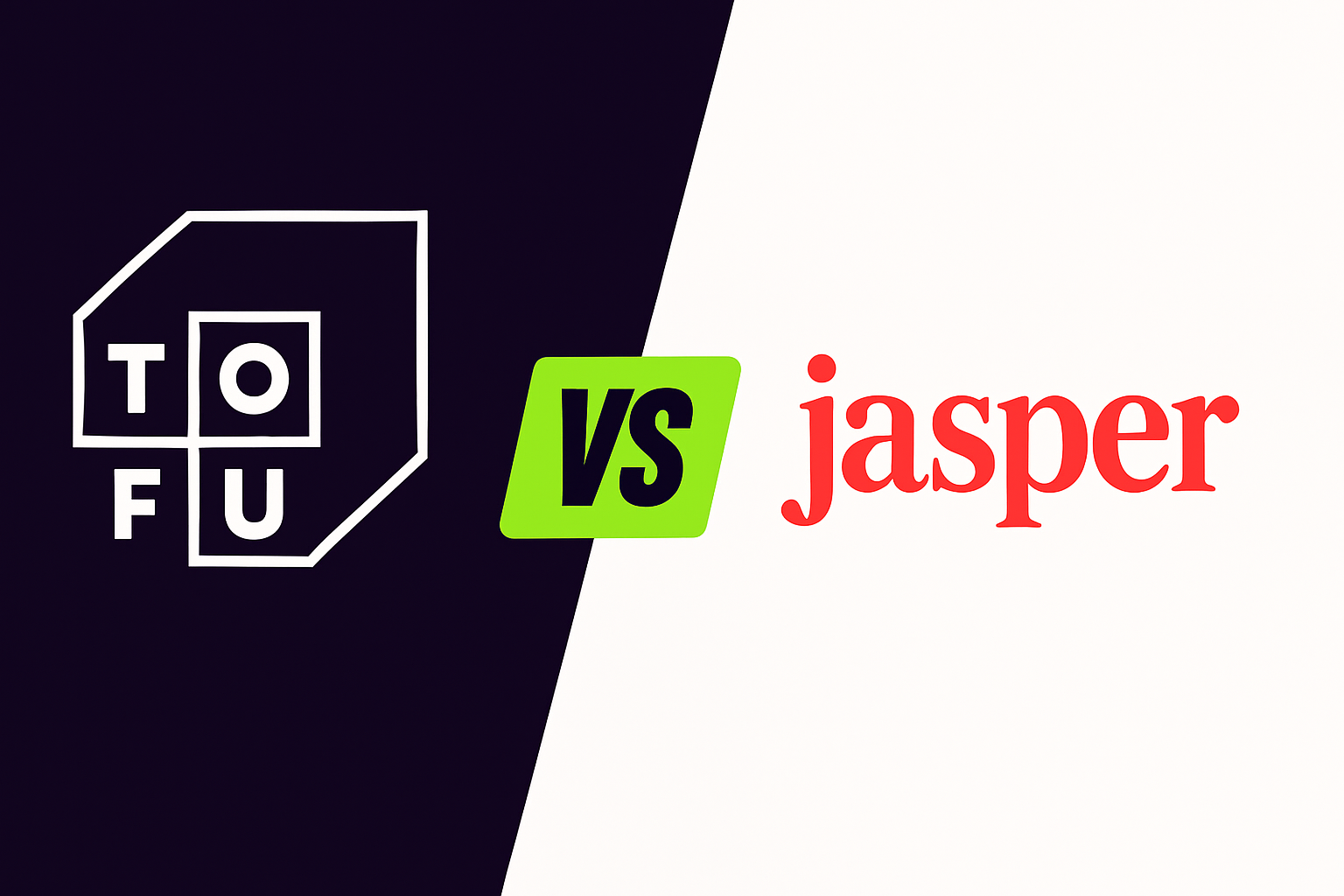
Tofu vs. Jasper: Which AI Marketing Tool is Best?
Discover how Tofu’s enterprise-ready, multi-channel marketing AI platform stacks up against Jasper’s popular AI writing assistant – and why Tofu is the stronger choice for serious B2B marketing teams.
.svg)
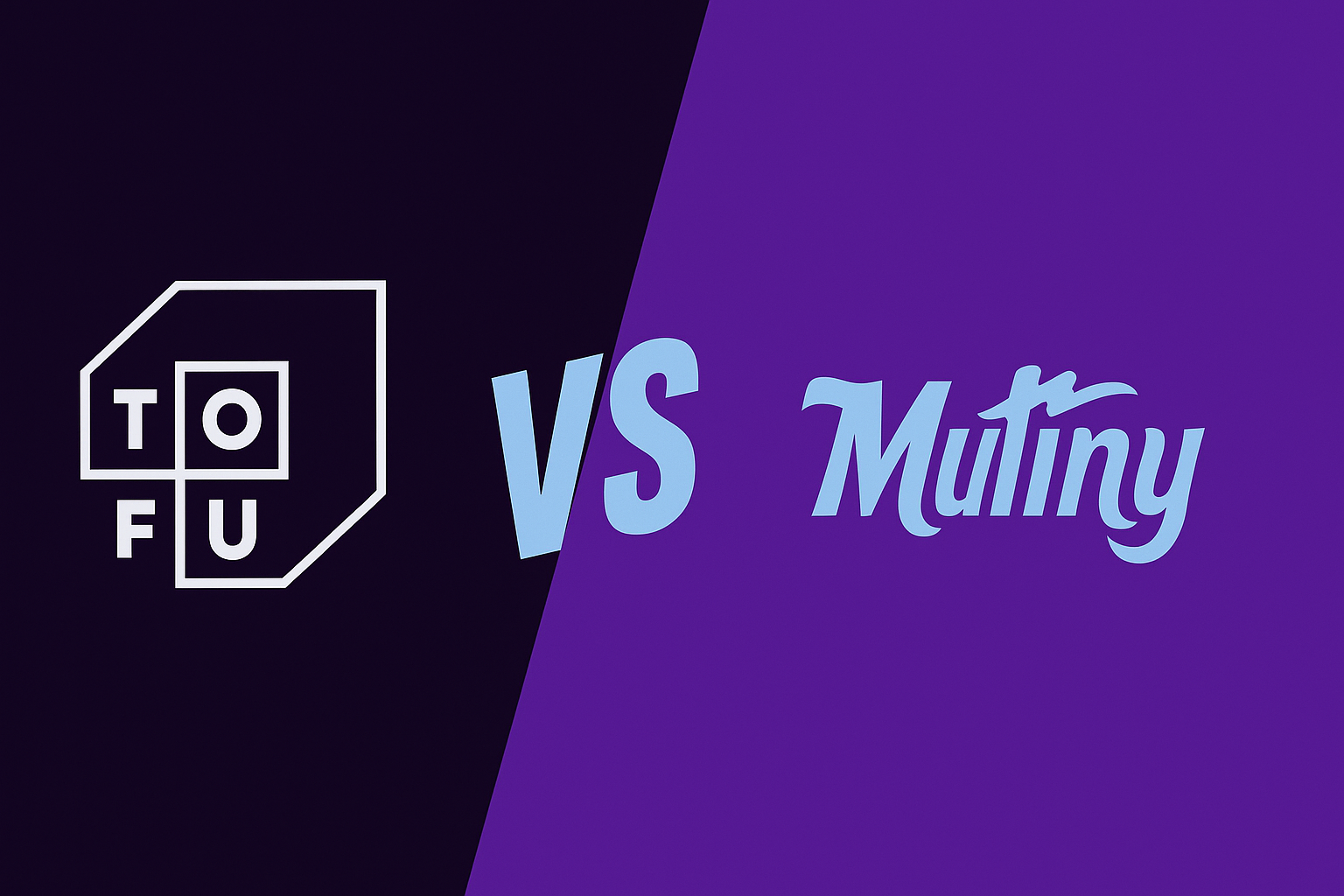
Tofu vs. Mutiny: Which is Best for ABM Campaigns?
Tofu vs Mutiny: Which ABM platform comes out on top? Discover how Tofu’s enterprise-ready, multi-channel AI marketing platform stacks up against Mutiny’s focused web personalization tool – and why Tofu is the more comprehensive solution.
.svg)
.png)
Tofu vs. UserLed: Which ABM Platform Should You Use?
Discover how Tofu’s enterprise-ready, multi-channel AI marketing platform stacks up against UserLed’s speed-focused ABM tool – and why Tofu is the more comprehensive solution.
.svg)

Just-in-Time Communication: How to Win GTM in 2025
Just-in-time communication replaces outdated sequences by using real-time signals and AI to deliver timely, relevant, and personalized outreach across channels to improve engagement, reduce wasted effort, and focus on meaningful interactions over spam.
.svg)
Want to give tofu A try?
Request a custom demo to see how Tofu can supercharge your GTM efforts.
ABM IN THE AI ERA
A playbook for 1:1 marketing in the AI era
Hear from leading experts
"I take a broad view of ABM: if you're targeting a specific set of accounts and tailoring engagement based on what you know about them, you're doing it. But most teams are stuck in the old loop: Sales hands Marketing a list, Marketing runs ads, and any response is treated as intent."

"ABM has always been just good marketing. It starts with clarity on your ICP and ends with driving revenue. But the way we get from A to B has changed dramatically."
.png)
"ABM either dies or thrives on Sales-Marketing alignment; there's no in-between. When Marketing runs plays on specific accounts or contacts and Sales isn't doing complementary outreach, the whole thing falls short."

"In our research at 6sense, few marketers view ABM as critical to hitting revenue goals this year. But that's not because ABM doesn't work; it's because most teams haven't implemented it well."
.png)
"To me, ABM isn't a campaign; it's a go-to-market operating model. It starts with cross-functional planning: mapping revenue targets, territories, and board priorities."

"With AI, we can personalize not just by account, but by segment, by buying group, and even by individual. That level of precision just wasn't possible a few years ago."
%201%20(1).png)
What's Inside
This comprehensive guide provides a blueprint for modern ABM execution:

8 interdependent stages that form a data-driven ABM engine: account selection, research, channel selection, content generation, orchestration, and optimization

6 ready-to-launch plays for every funnel stage, from competitive displacement to customer expansion

Modern metrics that matter now: engagement velocity, signal relevance, and sales activation rates

Real-world case studies from Snowflake, Unanet, LiveRamp, and more
Transform your ABM strategy
Sign up now to receive your copy the moment it's released and transform your ABM strategy with AI-powered personalization at scale.
Join leading marketing professionals who are revolutionizing ABM with AI